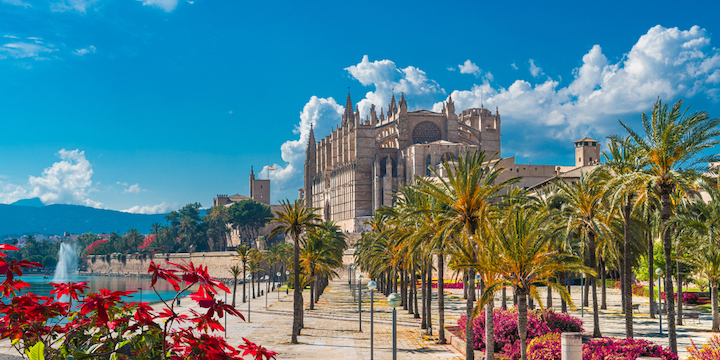Young people reclusive in their hotel rooms, angry parents demanding their release, thousands of people infected or in isolation: a giant focus of covid linked to student trips to the Balearic Islands continues to swell in Spain.
Hundreds of positive students
It all started last week when hundreds of young people tested positive across Spain on their return from a week-long party on the island of Mallorca, in the very touristy Balearic archipelago, to celebrate the end of their exams. According to authorities, these cases are linked to the Alpha variant (British variant) of the coronavirus.
Read also: The number of cases of covid is increasing again in Europe, warns the WHO
Nearly 6,000 Spaniards in isolation
Since then, the number of cases linked to this cluster has increased day by day and the situation still does not seem to be under control.
According to figures provided on June 30 by the Ministry of Health, at least 1,824 people have been infected and 5,978 have been placed in isolation in 12 regions of Spain. In the Madrid region alone, 778 people have tested positive and 2,886 contact cases placed in isolation. A young person from the Valencia region has been in intensive care since June 28.
“Culture broth”
For Fernando Simon, the chief epidemiologist of the Spanish government, it was “the ideal culture broth to promote transmission with multiple origins and major events without control“.
In Palma de Mallorca, 232 young people “having had a direct or indirect link with the household“are still confined and locked in their rooms at the Palma Bellver hotel, the regional government said on June 30. More than 25% of those confined in this establishment have tested positive for covid.
37% of Spaniards fully vaccinated
This giant outbreak of covid appeared against the backdrop of a marked improvement in the health situation in recent weeks in Spain thanks to the progress of the vaccination campaign.
According to the latest government figures, more than a third (37%) of the 47 million Spaniards are fully vaccinated against the coronavirus, while half (53%) have received at least one dose of a vaccine.
 Cherry tomatoes contaminated with salmonella: 92 sick and 1 dead
Cherry tomatoes contaminated with salmonella: 92 sick and 1 dead  A better coaching method can make a person grow
A better coaching method can make a person grow  What is the method to prevent diabetes in children?
What is the method to prevent diabetes in children?  What are the effective factors in causing stomach ulcers?
What are the effective factors in causing stomach ulcers?  Why do embarrassing memories seem to appear at night?
Why do embarrassing memories seem to appear at night?  The amazing link between SARS-CoV-2 infection and newly started diabetes
The amazing link between SARS-CoV-2 infection and newly started diabetes  WHO says monkey pox is not a global emergency right now
WHO says monkey pox is not a global emergency right now  Single cell RNA sequencing uncovers new mechanisms of heart disease
Single cell RNA sequencing uncovers new mechanisms of heart disease  Hepatitis of unknown origin: 3 new deaths and 228 cases worldwide
Hepatitis of unknown origin: 3 new deaths and 228 cases worldwide 